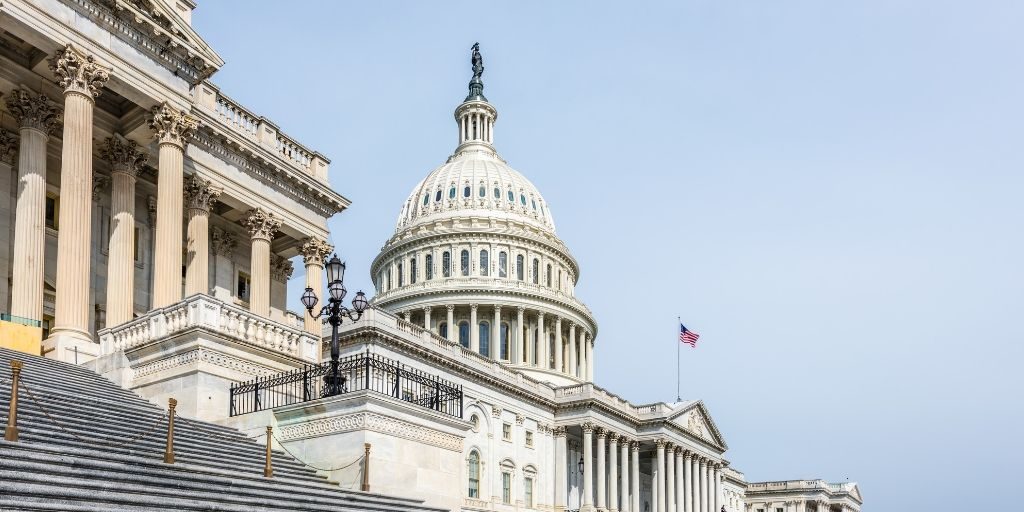Are you afraid of outliving your money in retirement? If you said yes, you’re not alone. Running out of money is the number-one fear people have as they transition into retirement. (1) With life expectancy on the rise, policymakers and employers understand they need to start helping retirees manage their money.
On May 16, 2019, the House of Representatives passed the Setting Every Community Up for Retirement Enhancement (Secure) Act. This was passed with bi-partisan support by a count of 417-3. The bill now goes to the Senate for voting. Although the Senate has a few minor differences, the majority of the bill has the same provisions. If passed by the Senate and approved by President Trump, this bill would make it easier for retirees to have a reliable stream of income that lasts through retirement—exciting news for the many Americans who are concerned about stretching their retirement dollars.
While the Secure Act bill proposes over 20 changes, here are 6 major changes that will affect you if you have an IRA or 401(k).
1. More Annuity Options
Annuities are a type of insurance that guarantees a monthly income in retirement. They’re usually part of pension plans. Annuities aren’t popular 401(k) options because employers can be sued if the insurance company goes out of business or fails to pay a claim.
Under the Secure Act bill, the liability would be removed from the employer. This means more employers could offer annuities to their employees without having to worry about being held liable for unpaid claims. The benefit to you is that you get more options to diversify your retirement income through different types of investments.
2. No IRA Age Limit
Under the current law, you can’t contribute to an IRA account past the age of 70½ (a major deterrent for those who are still working later in life). (2) Under the Secure Act, this age cap would be removed.
3. Increased Required Minimum Distribution Age
Currently, people who have money in 401(k)s or other tax-deferred plans must start making required minimum distributions (RMDs) at age 70½, even if they’re still in the workforce. (3)
Under the Secure Act bill, the new mandatory withdrawal age would be 72. This is helpful for those who are still working or are trying to stretch out their savings for a longer retirement.
4. New Additional Plan Features
The new law would require employers to list a participant’s projected monthly retirement income on their 401(k) statements. This projected monthly income would be based on their current account balance and would give plan participants time to adjust their savings rate and better prepare for retirement.
The bill would also allow new parents to make a penalty-free withdrawal of up to $5,000 from their retirement account within the first year of their child’s birth or adoption. This money could then be used to cover child-related expenses.
Under the Secure Act, long-term part-time workers would be able to finally take part in 401(k) plans. This is great news for women who disproportionately take on part-time work to care for children and aging parents.
5. Lifetime-Income Provision
There’s plenty of advice on how to accumulate wealth using various retirement plan accounts, but no one really talks about how to manage your wealth once you retire. The new lifetime-income provision, coupled with annuities, would ensure retirees don’t outlive their money.
If your employer doesn’t offer annuities, the bill would allow you to roll your accounts over to an IRA so you could continue contributing to your retirement.
6. Changes To Inherited Retirement Accounts
Under the current law, inherited retirement account distributions can be spread out over the recipient’s lifetime. Under the Secure Act, a recipient would be required to withdraw the money—and pay taxes on it—within a 10-year period.
This doesn’t affect those who inherit smaller accounts. But for those who inherit larger accounts, taxes will have to be paid over a shorter amount of time, which means a higher tax bill. Surviving spouses and minor children are exempt from this rule.
Your First Step
If you’re concerned about how the Secure Act will affect you on your path to retirement, we’re here to help. At Bridgelight Financial Advisors, we help you make what you’ve saved last the rest of your life so you can live out your retirement the way you want. To learn more, call (203) 795-7080, email [email protected], or schedule an appointment online!
About Bill
Bill Leavitt is the president of Bridgelight Financial Advisors, an independent, privately owned financial advisory and financial planning firm. He specializes in working with pre-retirees, retirees, professionals, and women investors, helping them navigate a complicated and ever-changing investment landscape. With over 25 years of experience, Bill serves his clients using his own unique financial planning model, The Wealth Focus™ Process, where he helps clients develop their customized long-term wealth strategy in four comprehensive steps. A Connecticut native, Bill resides in southern Connecticut with his wife, Laura, and their three daughters. To learn more about Bill, connect with him on LinkedIn.
_________
(3) https://www.irs.gov/retirement-plans/retirement-plans-faqs-regarding-required-minimum-distributions
